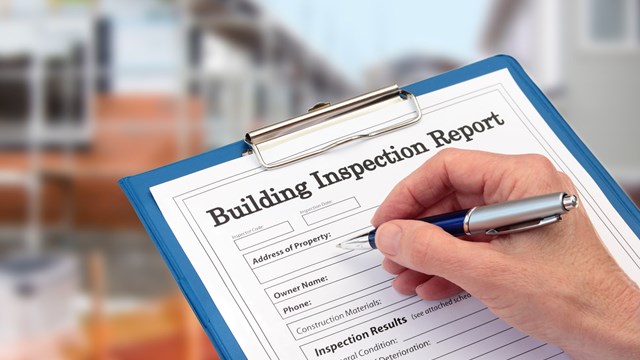
In New York City, it is not uncommon for boards and managing agents to levy a “flip tax,” or a transfer fee paid to the co-op or condo association by owners who sell their units.
“Flip taxes are extremely beneficial as an ongoing funding source for building reserves and capital improvements,” observes Richard Montanye, a CPA with the Uniondale, New York-based tax and business consulting firm Marin & Montanye, LLP. “Buildings that have flip taxes generally have fewer assessments, and may have lower debt levels as well.”
But while condo associations in New Jersey could certainly use the money provided by such fees, the practice never quite took off in the Garden State. Additionally, a major real estate legal ruling—Micheve, LLC v. Wyndham Place in 2005—put a limit as to what boards are allowed to do at point of sale, requiring them, in many situations, to look to other means of generating revenue.
Robert Griffin, a partner with the law firm of Griffin Alexander, P.C. in Randolph explains that, due to the result of the aforementioned case, “The imposition by defendant condominium association of a non-refundable capital contribution fee whenever there is a transfer to title to a condominium unit violates the provisions of the Condominium Act, requiring that common expenses for maintenance of the common elements by charged to all unit owners based upon their proportionate individual interests in the common elements, as well as the defendant’s master deed and bylaws.”
In layman’s terms, a policy must be spelled out explicitly in an association’s master deed or bylaws; it cannot be established by resolution. This decision placed something of a stigma on the transfer fee or resale contribution, and has led most associations in New Jersey to embrace other moving-related charges, and to rarely issue any fee to the seller at all in most cases (although there are exceptions).
Paying the Piper
In lieu of flip taxes or transfer fees, New Jersey condo residents have been paying some combination of escrow, membership fees, and, especially, “initial contribution to working capital” charges, according to Karen Sackstein, a CPA with condo specialists The Condo Queens, who entered the game several decades ago. According to Sackstein, these fees are so ingrained in condominium life that buyers rarely bat an eye when presented with them.
“The aforementioned fees have been in place at least as long as I’ve been in the industry, so probably since the beginning,” says Sackstein. “Typically, the requirements for closing a sale are outlined in an association’s governing documents, so there’s not really an issue. The initial contribution to working capital is especially important in a new development, because the initial operating budget is often inadequate for meeting day-to-day operational needs, and there winds up being a deficiency that gets settled by transition down the road. But the initial working capital contributions or membership fees can provide the association with cash flow during the early goings that keeps it afloat day-to-day.”
This “membership fee” is designed to cover the costs of getting a new member up to speed on the ins-and-outs of a community, according to Cindy Petrenko, the president and owner of Complete Property Management Services in Vernon. Petrenko also wants potential buyers to note that the initial contribution to working capital is refundable, and echoes Sackstein’s point that it exists primarily to boost the association’s coffers during transitional periods.
Somewhat contrarily to Sackstein, Petrenko attests that she has encountered buyers who are unaware of these underlying fees when they purchased their condominium properties. “Real estate agents really need to do their parts regarding the matter of fees, and educate their clients so they know everything that their association requires in regard to a working capital contribution, regularly scheduled monthly maintenance payments, and capital improvement projects, should their community require such a thing in the future,” she says, underlining the point that, should property managers and managing agents adequately inform their clients about any fees they may later encounter, it will eliminate any unpleasant surprises down the road.
To put more of a hard number on these abstracts, Griffin says that an escrow usually covers a month or two of maintenance fees. In the event that “an owner not pay his or her fees in a timely manner, the cash flow of the association remains uninterrupted,” Griffin says. A membership fee often runs about $150, and, if dealing with a large condo or high-rise that presents more of a logistical challenge come move-in, there may be a fee associated with padding elevators and other labor-related needs.
Sackstein notes that move-in (and move-out) fees are more common in associations that have a lot of non-owner-occupied units. Occasionally, these act as more of a security deposit, and are refundable should the condominium successfully change hands without damage but often the association holds on to the fee regardless as a source of income.
“Associations are doing whatever they can to find any additional sources of income without having to increase the budget or do a special assessment,” says Sackstein. “So some associations have begun implementing new fees for the first time, while others have increased the amount of their existing fees by whatever legal means they're allowed to do so.”
The final type of fee that Sackstein mentions, given its nature, applies solely to co-ops. In those communities, as potential residents need to go through an approval process before they’re accepted, there is often an application fee levied. But this has no bearing on condominiums.
Clear Cut Communication
In delving into the case law mentioned above, Griffin notes that all of the fees described thus far have been embraced largely because they allow residents, boards and managers clear transparency in how funds are being allocated.
In Micheve, LLC. v. Wyndham Place, says Griffin, the association was charging a fee, “in the case of foreclosure or deed in lieu of foreclosure, and the private investor who was acquiring the unit—with the intent of selling it again—was being charged, along with the new unit owner. And in that particular case, there was nothing in the bylaws to attest for these charges; it was a policy made by way of resolution, and the court said that wasn’t good enough. The charges had to have appeared in the bylaws or master deed somewhere. And the reason for that is, had the charges appeared in the very first instance in the bylaws or the master deed, it would mean that everyone paid it, and it wasn’t discriminatory. And if it did not appear in the documents, then the charges fall to the whims of the board, and with every change in membership, the fee could go up or down. Everyone would be paying different amounts, which just isn’t fair.”
Griffin says that, at the rates he’d mentioned earlier, there are rarely problems with the charging of various fees. Responsible attorneys, he says, will try and stick to a customary and uniform language to avoid problems. He cites a book by fellow attorney Wendell Smith as the standard text consulted by developers when writing documents, and says that legitimate attorneys “won't try to make something up or gauge someone or do anything outside of industry standard.”
Generally, associations are audited on an annual basis, so they need to keep their procedures tight, or risk legal trouble that will prove more costly than anything they’d been skimming off the top of residents’ fees. Griffin says that, “Where games are played, there is rarely ever an active association attorney. Or you’ll find that they have no management, or the management they do have isn’t adhering to the same rules and regulations as responsible New Jersey managers. Qualified management firms will not have anything to do with nefarious dealings.”
The industry standard in regard to moving- and sales-related fees is widely practiced, and in this qualified managers, accountants and attorneys are well-versed. By surrounding itself with an upstanding team of professionals, an association can generate the kind of legal collateral that will keep its property not only surviving, but thriving. So while flip taxes and transfer fees may be out of favor, there are multiple other options for an association to embrace to keep the bankroll flowing.
Michael Odenthal is a staff writer at The New Jersey Cooperator. Freelance writer Brad King contributed to this article.






Leave a Comment